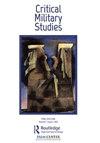The unsolicited rocket: a story of science, technology, and future wars
Q1 Arts and Humanities
引用次数: 1
Abstract
ABSTRACT This article investigates the puzzling case of the unsolicited rocket: a Norwegian research establishment successfully developed a weapon system that no one wanted or had asked for that was later widely adopted. We argue that the ‘Terne’ weapon existed not because it was needed based on rational calculations about efficiency, but because of the narratives, coalitions, and competitive dynamics that surrounded it and made it useful. Conventionally, war and technology are often considered distinct ‘things’ with immutable essences, used as variables to explain other phenomena, rather than being examined on their own terms. In this case, we focus empirically on the configuration of sociotechnical imaginaries, and the capacities for action that arise out of it. In foregrounding sociotechnical systems, this is not a case of the ‘militarization’ of civilian society and research in peacetime. Rather, agency lay in competitive networks of narratives and coalitions between technologies, individuals, professions, technological communities, military organizations, and funding bodies, together shaping how ideas and technologies become authoritative and dominant.不请自来的火箭:一个关于科学、技术和未来战争的故事
本文调查了一个令人费解的未经请求的火箭案例:一家挪威研究机构成功地开发了一种武器系统,没有人想要或要求,后来被广泛采用。我们认为,“Terne”武器的存在并不是因为基于对效率的理性计算而需要它,而是因为围绕它并使其有用的叙述、联盟和竞争动态。传统上,战争和技术通常被认为是不同的“事物”,具有不可改变的本质,被用作解释其他现象的变量,而不是按照它们自己的条件进行研究。在这种情况下,我们以经验为中心关注社会技术想象的配置,以及由此产生的行动能力。在前景社会技术系统,这不是一个“军事化”的平民社会和研究在和平时期的情况。相反,代理存在于技术、个人、专业、技术社区、军事组织和资助机构之间的叙事和联盟的竞争网络中,共同塑造了思想和技术如何成为权威和主导。
本文章由计算机程序翻译,如有差异,请以英文原文为准。
求助全文
约1分钟内获得全文
求助全文
来源期刊

Critical Military Studies
Arts and Humanities-History
CiteScore
1.90
自引率
0.00%
发文量
20
期刊介绍:
Critical Military Studies provides a rigorous, innovative platform for interdisciplinary debate on the operation of military power. It encourages the interrogation and destabilization of often taken-for-granted categories related to the military, militarism and militarization. It especially welcomes original thinking on contradictions and tensions central to the ways in which military institutions and military power work, how such tensions are reproduced within different societies and geopolitical arenas, and within and beyond academic discourse. Contributions on experiences of militarization among groups and individuals, and in hitherto underexplored, perhaps even seemingly ‘non-military’ settings are also encouraged. All submitted manuscripts are subject to initial appraisal by the Editor, and, if found suitable for further consideration, to double-blind peer review by independent, anonymous expert referees. The Journal also includes a non-peer reviewed section, Encounters, showcasing multidisciplinary forms of critique such as film and photography, and engaging with policy debates and activism.
 求助内容:
求助内容: 应助结果提醒方式:
应助结果提醒方式:


